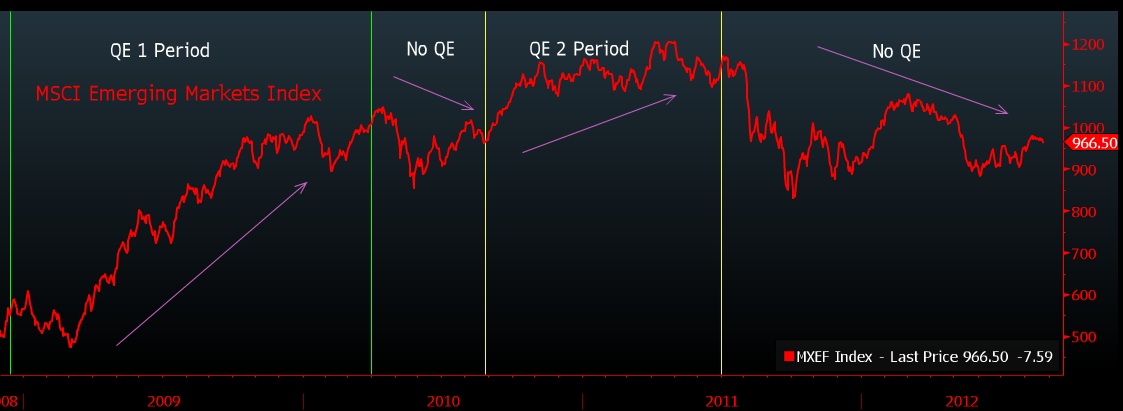“QE3 remains quite likely over the next few months . . . Emerging-market stocks remain the high-beta, risky end of the equity spectrum, which tend to outperform on good news.”
-Geoffrey Dennis, Citigroup global emerging- markets equity strategist, wrote in an Aug. 24
Consider the performance of the MSCI Emerging Markets Index during the first two rounds of so-called quantitative easing between 2008 and 2011.
The U.S. central bank bought $2.3 trillion of mortgage and Treasury debt to cap borrowing costs. Developing-nation equities jumped 80 percent in the first QE period from December 2008 to March 2010, while developed-market stocks rose 35 percent. The emerging-markets gauge rose 19 percent in the second QE period between August 2010 and June 2011, and dropped by an average of 9.6 percent after QE1 and QE2.
The MSCI Emerging Markets Index has increased 5.4 percent this year, trailing an 8.7 percent gain in the MSCI World Index of developed countries. The emerging stocks measure trades at 10.9 times estimated earnings, compared with 13 times for the developed-nations index, data compiled by Bloomberg show.
Source:
Bloomberg
By David Wilson
August 28, 2012



What's been said:
Discussions found on the web: